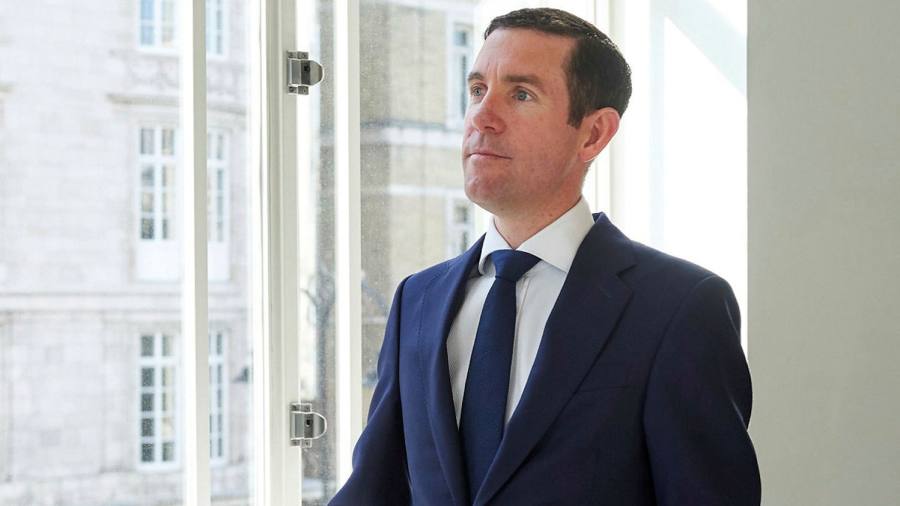[ad_1]
It’s been a week to forget for financial innovation. Greensill Capital, a supply chain finance company founded by the son of an Australian watermelon farmer, is teetering on the precipice.
The plot so far has more twists than an M Night Shyamalan movie — and probably more memorable characters too. On Monday, Credit Suisse suspended $10bn of funds linked to assets that Greensill had originated. Regulator BaFin took control of its German bank later that day as Greensill’s lawyers warned in an Australian court that, should its business unspool, 50,000 jobs globally were at risk. By Wednesday morning its British arm had filed for insolvency protection in the UK courts.
Adding to the mayhem is the company’s role in backing steel magnate Sanjeev Gupta. It also employs former UK prime minister David Cameron as an adviser.
Greensill specialises in invoice financing, a centuries-old practice that involves a third-party financial institution paying a company’s suppliers in advance of the invoice date and at a slight discount. It’s a win-win for all involved, in theory. Suppliers are paid faster, their customers pay later, and the financial institution makes a small return on its capital.
But like many financial innovations, it’s a “staircase up, elevator down†arrangement. If the availability of the financing disappears overnight, both the company and its suppliers are left suddenly with less cash at hand. Illiquidity, and even insolvency, can beckon.
Critics have been quick to point to Greensill’s problems as yet another sign of financial markets run amok. But it’s wise not to jump to conclusions.
Financial market blow-ups are generally idiosyncratic. Think back to Carillion, the government outsourcer that collapsed in 2018. The problem there was an accounting one — in a desperate bid to keep revenues growing, the company was recognising more from its slow-moving projects than it should have been. When the cash failed to arrive, it was forced to take a £845m provision against its receivables, and the balance sheet began to unravel.
Supply chain financing creates its own accounting temptations for the company involved. As former analysts Marc Rubinstein and Stephen Clapham pointed out last year, the practice boosts both cash flow and the company’s return on capital employed while masking its true debt position. For analysts and investors, it presents a challenging web to untangle.
Any autopsy of Greensill is likely to usher in further regulation for supply chain finance in the form of new accounting rules and more institutional scrutiny. It won’t matter much though because, like whack-a-mole, the next high-profile corporate failure will pop up somewhere else entirely.
Blinded by science
The Daily Mail can’t get enough of experts, writes Bryce Elder.
Exasperation met news that Daily Mail and General Trust is buying New Scientist, the house magazine of hypothesis testers. Being owned by a tabloid publisher means trading credibility for sensationalism, the argument goes. A common trope among commenters was to borrow the argot of MailOnline’s infamous “sidebar of shameâ€, joking about molecules in romantic entanglements and researchers flaunting their beach bodies.
Concern is understandable. The self-appointed voice of Middle England has a patchy record on science, most notably its amplifying of fears around the MMR vaccine. (Giving fraudulent MMR research credence was “a matter of profound regret,†the Mail said in a leader article in 2019.)
Yet DMGT is no proxy for its flagship title. Paul Zwillenberg, chief executive since 2016, has rebuilt the group by selling highly valued business information services and recycling cash into cheap but hardy consumer brands. Euromoney magazine, the Zoopla property portal, software maker Hobsons and the Genscape energy information provider have been exited on valuations of up to 40 times their operating earnings. The I newspaper, his previous big acquisition, cost less than 5 times historic ebitda.
At £70m New Scientist is more expensive, costing about 10 times expected ebitda, which befits a business that takes three quarters of its revenue from subscriptions. Expansion internationally and from events are what matches Zwillenberg’s game plan; interfering on the editorial side does not.
Next up will be the float of Cazoo, a used-car retailer in which DMGT has a 20 per cent stake. Though it only opened for business in December 2019, Cazoo is said to be seeking a £6bn valuation, or three times the headline value of a funding round in October. Analysts have put values on DMGT’s online, print media and exhibitions businesses of around £360m, £280m and £200m respectively, meaning Zwillenberg’s Cazoo punt might be more valuable than all those put together.
City Bulletin
Sign up to the City Bulletin newsletter for the latest company news. Every morning our UK equities reporter Bryce Elder covers the biggest business stories and delivers them straight to your inbox by 8am UK time.
It’s all academic for many institutional investors. DMGT is off limits because of a dual-shareholding structure that locks in control with Viscount Rothermere’s family trusts and locks it out of a FTSE listing. And while a Treasury-backed overhaul of company listing rules might normalise two-tier ownership, its proposed five-year limit ought to rule out a stock floated in 1932.
For everyone else, the biggest hurdle to investment remains the Daily Mail. Rival newspaper publishers have tried group rebranding to take attention away from problems elsewhere, which might offer one fix for DMGT. But given Zwillenberg’s no-sacred-cows disposals policy, it would be remiss to completely rule out a more radical solution.
Greensill: jamie.powell@ft.com
DMGT: bryce.elder@ft.com
[ad_2]
Source link





